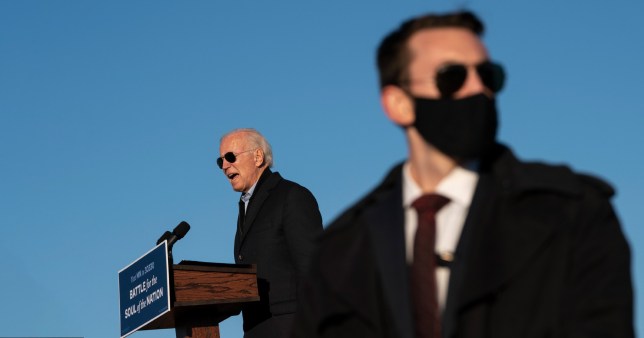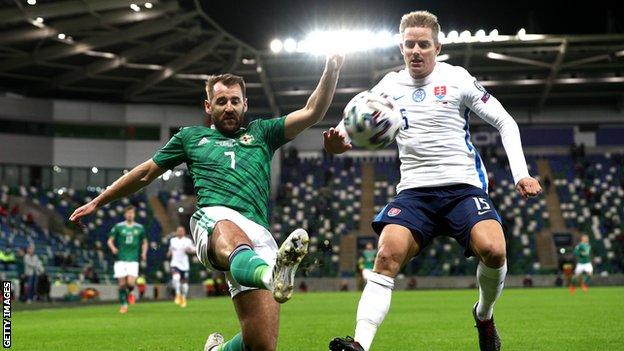The Professional Triathlon Championship marked the end of an exciting year for professional triathletes, as more than 100 of the world’s top triathletes were invited to take part in the 100 kilometre Daytona International Speedway circuit.
After KOVID-19 destroyed the entire racing calendar, including the two editions of the World Ironwork Championship, many athletes had only one wish: to fight before the end of the year. For some, it was a way to satisfy their impoverished bank accounts, as the prizes make up a large part of the athletes’ salaries, but for most, it was a way to scratch the jitters of the race they were desperately waiting for and keep their bodies in shape, hoping that one of the races would finally get the green light.
The famous Daytona circuit created a friendly atmosphere for COVID-19: 2 km of swimming in the lake in the middle of the course, 80 km of cycling in oval circles and 18 km of running on the rest of the course to the finish, at a generous price of $1.15 million (£855,000) – the biggest sport ever, with every athlete getting at least $2,500 at the finish line.
Canada’s Paula Findlay won an exciting battle in the women’s event, gaining a two-minute, 36-second lead that was big enough for even Ironman World Champion Anne Haug, who returned from 13th place, including an A in the trash for the penalty shootout, to finish second, despite sweeping the field with her famous dominant running style.
Another German woman, Laura Philippe, finished on the podium in third place after three hours and 24 minutes of racing.
At the start of the women’s race, British Lucy Hall was impressed to leave the swim for five seconds, then was overtaken by 31-year-old Findlay on a motorcycle and crashed when the ITU Olympic rider’s longest distance was in danger.
Lisa Norden, ITU world champion and Swedish Olympic silver medalist, fought an exciting battle with Findley until a 36-year-old girl suffered a heartbreaking calf injury that cost her the top prize of $100,000.
It’s so crazy, I don’t even know what to say. I didn’t even expect to win. It was one of those perfect races that never happened, but it did. I ran as fast as I could, but I felt good. My God, I can’t believe it, Findlay said.
I’m glad it’s good to have such a race next year – the only race of the year.
Fault! The file name is not specified. The prize pool of $1.15 million (£855,000) is the biggest sport ever. Talbot Cox
For the men, the race was much tighter, but also affected by calf injuries, as was two-time British Olympic champion Alistair Brownley, who led the 18-kilometre race to several kilometers when he was also eliminated from the competition.
The first seven men, including American Tim O’Donnell, shared about 25 seconds, but 24-year-old Norwegian Gustav Eden had to give up a remarkable victory when he returned from 17th place to win in three hours and five minutes.
Meanwhile, the favourite of the race, the Canadian Lionel Sanders, was wrestling for fourth place at home, complaining that his performance was not a good race for money.
I was a very bad swimmer. He said you can’t swim like that. I came here to find out where I am. That’s the beauty of triathlon – a gift that is always passed on, and there’s always something to work on.
If you swim terribly, you have the defect that you have to pass a lot of guys, so if you swim better, you don’t have to. I didn’t do so well, but I finished it well, so I’m happy with these pieces of the puzzle. I was hoping for a good fight this year, but I’m taking the show today. I came here to compete, and I didn’t let them run for their money.
Sky Munch summed up the purpose of the event in her post-race interview: Unfortunately, every second costs a few hundred dollars. It’s amazing to have such a prize bag and to help us increase the professionalism of the prize bag and help our triathletes make a living.
Despite the absence of competitions, athletes and athletes work behind the scenes to try to correct areas of failure and support their professional athletes in a fair and equal way.
Their greatest commitment is equality, and on the road to peace it all comes down to money.
Born in the 1970s, triathlon was largely open to men and women, who covered the same distances and generally (but not always) received the same prices and media attention, according to Rocky Harris, president of the American Triathlon: The best triathletes are doing pretty well, but those in the middle are suffering.
The new OPT, which has a sports committee consisting of several leading triathletes including Tim O’Donnell, Alistair Brownley, Meredith Kessler and Sky Munch, and investors, will be expanded at the end of 2019. She had big plans for the year and her overall goal was to create a platform similar to the ATP for tennis and the PGA for golf so that athletes can come together and create a stronger force to take the sport forward.
In 2020 there was not only the desire but also the need to participate in competitions because a career was at stake. When the pandemic destroyed businesses and the economy in March, a non-profit organization paid its $2.5 million by the end of the year, meaning the top 100 athletes received a paltry $2,500 or more based on their ranking. Last month they announced that athletes would get paid maternity leave and that their rankings would be frozen until they decide to resume competition.
By comparison: The most prestigious event on the calendar, the Ironman World Cup in Kona, Hawaii, offers just $650,000 (£484,000) and 70.3 world championships – $250,000 (£186,000), with the winners of the men’s and women’s championships taking home $120,000 from the big (and expensive) island.
The OPT was initially criticized and sceptically judged because of its huge, seemingly unattainable goals, which it uses to attract sports companies interested only in profit maximization, but this is the first year that a young organization protects its livelihood and invests in the future of triathlon from which other sports can learn.
Of course, throwing money at a problem is not always the solution, as Lionel Sanders says: If you fight for money, you’ll be destroyed.
But when a young sport that was once the ultimate test of endurance, born on an island paradise, turned into a tedious global business empire, this year’s growth has reinvested in the system and enabled the athletes to pay their bills. This means that there is hope for the future and that 2021 looks good.
Related Tags:
athletics news now,world athletics news,athletics on tv today,athletics news diamond league,athletics kenya news,athletics results




